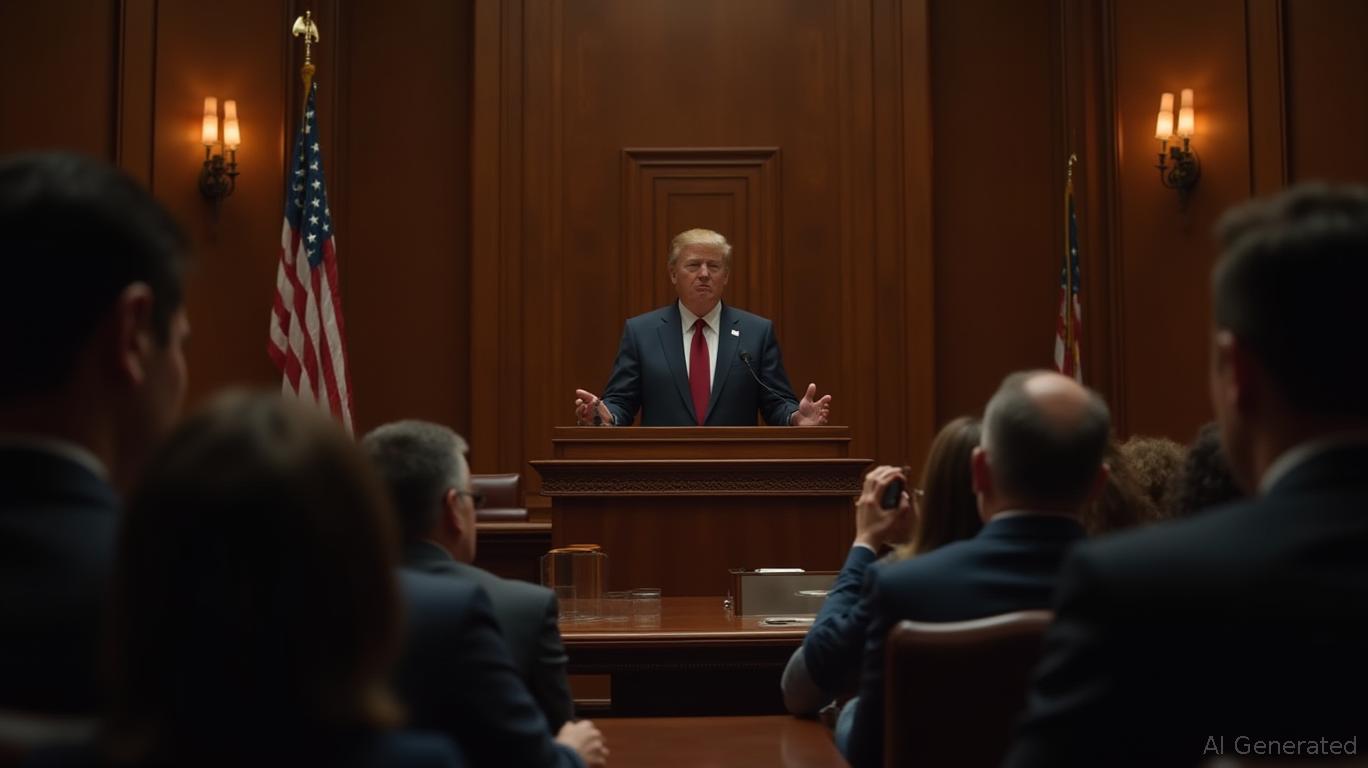Senate Pushes Forward with Cryptocurrency Legislation Despite Shutdown as 2026 Approaches
- US Senate advances bipartisan crypto bill amid government shutdown, targeting 2026 passage to establish clear digital asset regulations. - Boozman and Lummis lead negotiations on the Responsible Financial Innovation Act, clarifying SEC-CFTC roles and stablecoin governance. - Lawmakers warn of delayed action risks due to 2026 midterms, with industry advocates pushing for balanced innovation and investor protections. - Proposed stablecoin safeguards and global alignment with EU's MiCA framework aim to miti
Despite the ongoing government shutdown, the US Senate is moving forward with a bipartisan bill to shape the structure of the cryptocurrency market. Lawmakers are working toward passing legislation by 2026 that would provide definitive regulatory guidelines for digital assets. This initiative, led by prominent committee heads and backed by industry supporters, aims to resolve persistent uncertainties in crypto regulation and strengthen the US’s position as a leader in digital finance worldwide.

Senate Agriculture Committee Chair John Boozman (R-Ark.) and Wyoming Senator Cynthia Lummis, a well-known advocate for cryptocurrency, are leading the charge to finalize the Responsible Financial Innovation Act, which serves as the Senate’s counterpart to the House-approved CLARITY Act. The legislation is designed to clarify the regulatory roles of the Securities and Exchange Commission (SEC) and the Commodity Futures Trading Commission (CFTC), while also tackling stablecoin oversight and measures to ensure market integrity. “We are moving very quickly on a bipartisan market structure bill,” Boozman said, stressing the need to meet committee review deadlines by the end of the year.
The legislative process has not lost momentum despite the shutdown that began in late October over budget disputes. While many federal workers are on furlough, members of Congress continue to work and receive pay, allowing bipartisan negotiations to proceed. Still, Senator Thom Tillis (R-N.C.), who sits on the Senate Banking Committee, cautioned that lawmakers must act by early 2025 to avoid delays caused by the 2026 midterm elections. “I don’t have high hopes for significant progress on digital assets, stablecoins, or crypto in this Congress,” Tillis remarked, highlighting the limited timeframe for action.
The bill has gained support as crypto companies and investors push for regulatory clarity. The CLARITY Act, which the House passed in July, set the stage for defining digital asset categories and minimizing regulatory overlap. Although the Senate Banking Committee’s discussions have been slowed by the shutdown, Bloomberg reports suggest that about 90% of unresolved issues could be settled in the coming weeks. Industry leaders, including
One of the bill’s central elements is the regulation of stablecoins, an area that has experienced rapid expansion but remains exposed to systemic risks. The proposed law could introduce federal protections for stablecoins, such as requirements for reserves and transparency, addressing concerns stemming from recent market instability. This approach is in line with international moves like the EU’s MiCA regulations to create organized digital asset markets.
The effects of the shutdown on crypto legislation are complex. While the House’s activities are largely on hold, the Senate’s continued operations have kept the bill moving forward. However, Tillis pointed out that the shutdown is heightening partisan divides, making it harder to reach agreement. “Without clear legislation, the US could fall behind global competitors,” a policy expert from the Coin Center think tank observed.
As talks become more urgent, the results could reshape how crypto is regulated in the US. With bipartisan backing and industry input, the Senate’s ability to meet its 2026 goal will depend on overcoming the shutdown’s obstacles and coordinating with the House. For now, lawmakers are concentrating on building a regulatory framework that supports innovation and maintains market stability.
Disclaimer: The content of this article solely reflects the author's opinion and does not represent the platform in any capacity. This article is not intended to serve as a reference for making investment decisions.
You may also like
Tim Cook states that Apple is willing to pursue mergers and acquisitions in the field of AI
Perplexity enters into a long-term licensing agreement with Getty Images